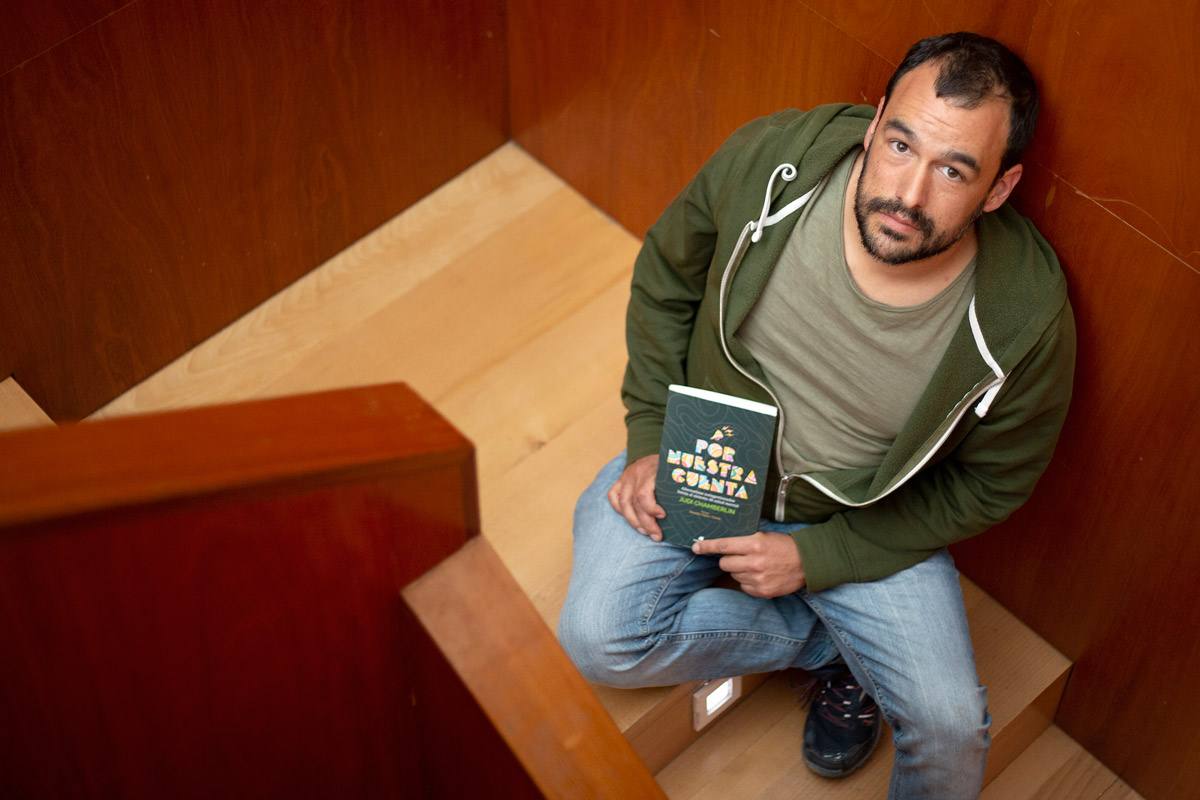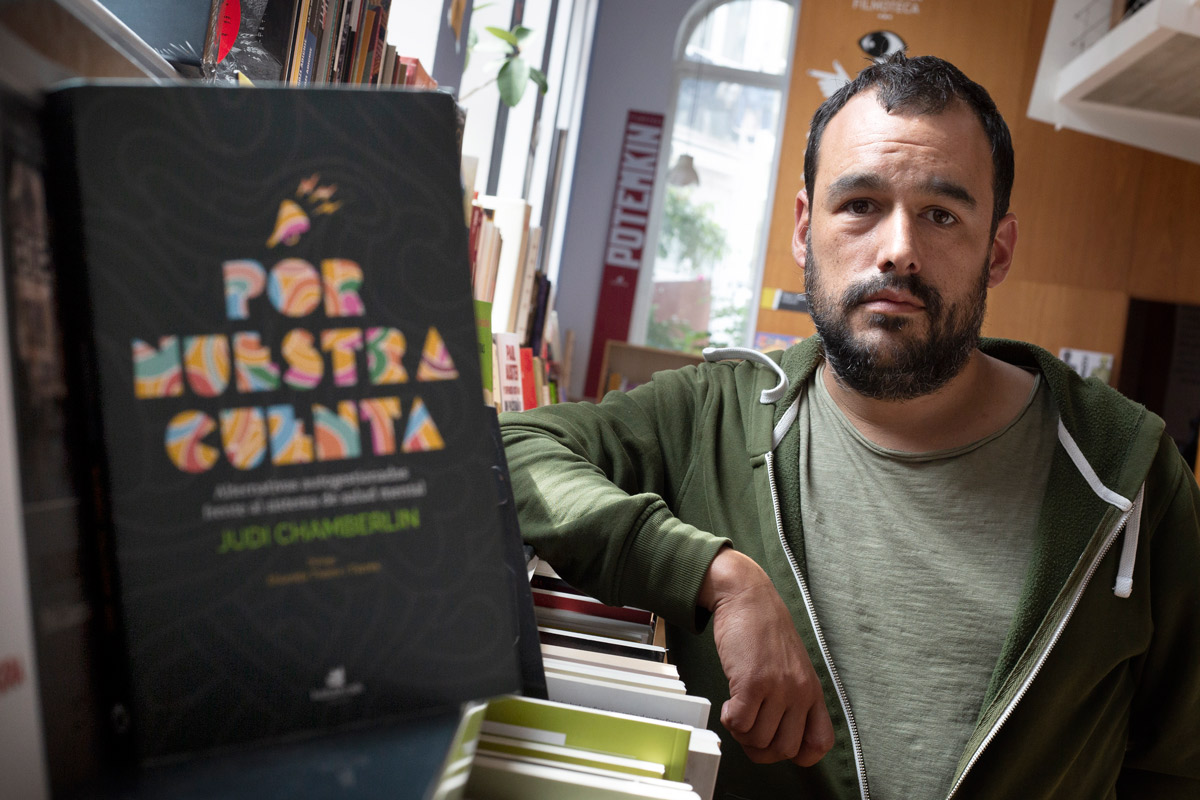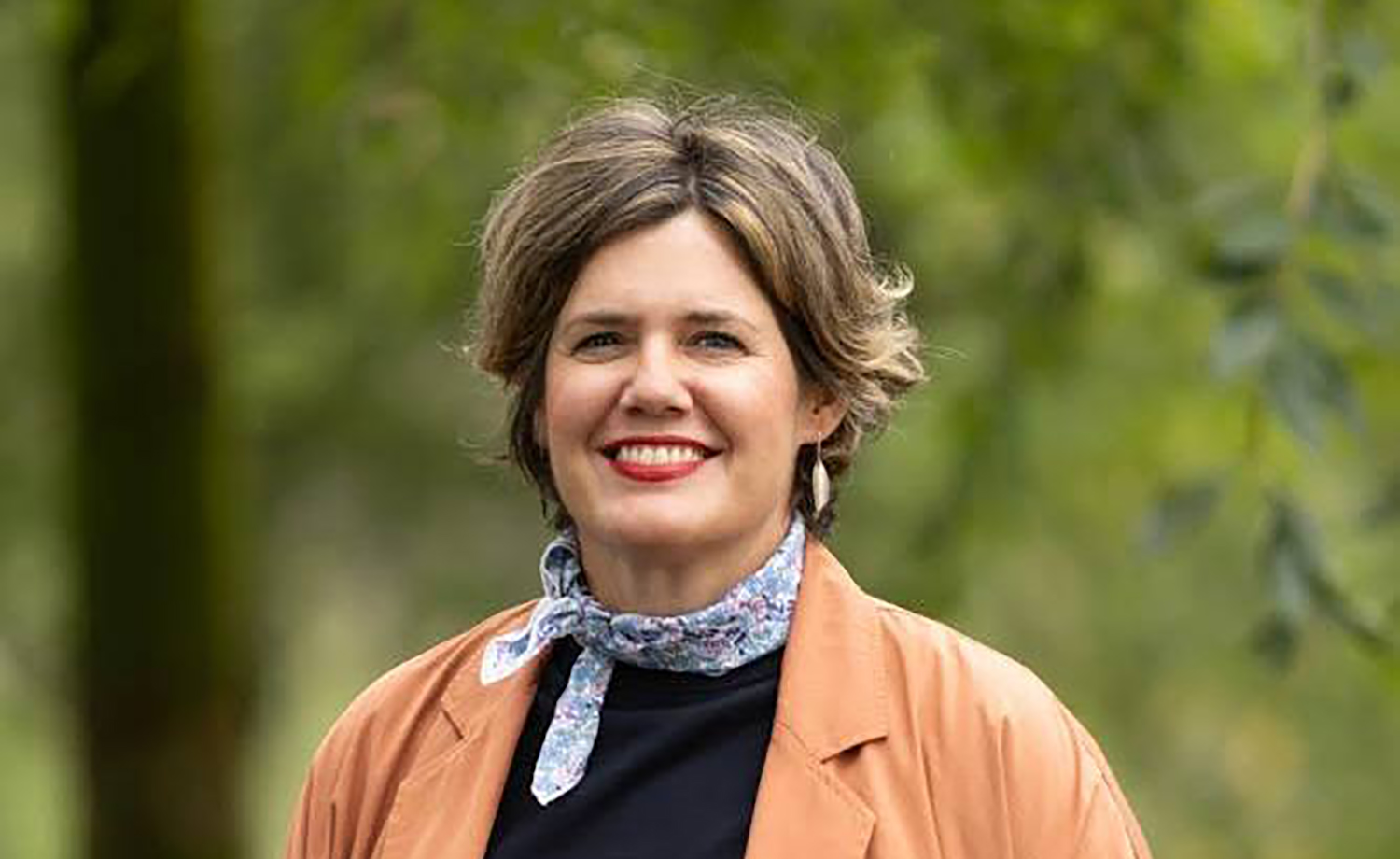“People with psychic suffering are accused of not being able to manage our lives”
- Activist Jud Chamberlin proposes alternatives based on self-management to address the mental health system On our own: Self-managed alternatives to the mental health system. Elisenda Tuneu i Tarrés and Hug Roger Figuera Vibre, two survivors of psychiatry, return to Spanish. They demand the creation of care networks without professionals. The book has been presented in Katakrak of Pamplona.

Author Jud Chamberlin talks about terms such as mental health patient, user, psychiatric locked and survivor. Is there a debate on designation?
Hug Roger Figuera: The members of the movement said that they were ex-patients, but when talking about patients legitimized the biomedical discourse, they began to use the psychiatric articulation to be more combative. In short, they became survivors. However, the greatest representation currently existing is that of users, as professionals are more comfortable in their use.
Elisenda Tuneu: Today, people moving around crazy pride have politicized and assimilated the meaning of crazy. So, there are people who identify themselves as crazy and others who still feel that label is too harsh. There's everything.
What words do you feel comfortable with?
R. Tuneu: I still don't identify crazy, although I've been through a very hard process, I'd rather say I'm the one who's still alive. Saying crazy is very hard because it has a negative connotation.
H. R. Figuera: In one of those I tried to commit suicide, I saw clearly that the psychiatric process almost killed me. I am therefore the one who survived.
Do you think the goal of professionals is to cure?
R. Tuneu: Yes, no doubt. But the biomedical model puts physical and psychological suffering at the same level. In other words, it is believed that any problem will be solved with an expert. We claim that there are not always experts and that the biomedical model delegitimizes collective surveillance.

Does wanting to heal have to do with capitalism?
H. R. Figuera: The purpose of the system is to create as productive subjects as possible, functional to the capital, and if we cannot, what they seek is to consume psychiatric products. I spent three bad years working, it was very bad, but the problem got worse when I stopped working. When I stopped producing, I entered the psychiatric circuit.
What prejudices are there about people who have been in the psychiatric ward?
R. Tuneu: Chamberlin does a very good theoretical job. He was the first to say that people with psychic suffering are accused of not being able to manage our own life, of relying on another person, of having the consent of others and of being aggressive. These prejudices have been widely disseminated by the media.
Besides politicizing madness, do you want to dignify it?
R. Tuneu: The book politicizes suffering and refers to antipsychiatry. A group of psychiatrists decided to move away from the hegemonic discourse, but as professionals with certain privileges, we say they leave us in the background. What we claim from the madness movement is that the survivors of psychiatric processes have generated their own knowledge. Chamberlin claims that we are professionals by experience and not by studies.
In the preamble of the book they mention, for example, that Chamberlin should have an importance in feminism.
R. Tuneu: In addition to claiming the knowledge of madness, we wanted to make their image known. We continue to feel exclusion in feminist spaces, and that is why we believe that self-criticism and slowing down the way we work so that we too are part of the movement. They don't listen to us today.
They claim self-management in the face of the biomedical model. What alternative do you imagine?
H. R. Figuera: We have to create little things. Our refuge is home and not big centers.
R. Tuneu: We need models without professionals, because they gain power easily.
What happens when professionals participate in alternatives?
H. R. Figuera: Chamberlin explains two models: one in which there are professionals and not professionals, but those who eventually created the group leave because the professionals take power; the second in which the non-professionals choose who the professionals will be and evaluate them once a year so they do not take power.
Inner voice
Elisenda Tuneu i Tarrés and Hug Roger Figuera Bibre are surviving psychiatric activists. On Our Own of psychiatric activist Jud Chamberlin: Patient Controlled Alternatives to the Mental Health System has been translated into Spanish with the help of Katraka. Figuera: “I got the pdf from the book and started returning it to make a gift to Elisenda. Before translating two chapters, I taught him the writing because we still feel what is mentioned there today,” explains Figuera. After last entering the psychiatric ward, Tuneu knows the image of Chamberlin: “When I started to identify the need to politicize psychic suffering, I found its first references, but very few texts.”
That was said to me by the former student, who took a long time to file a complaint that was in court months and who, on the recommendation of the psychologist, had withdrawn the complaint of rape. And I kept quiet, unable to guess what to tell the young man that he still had... [+]
It is a subject that has recently been on everyone’s lips and which raises concerns and responsibilities. In life, many individual, social, and structural traits can be combined to protect or weaken our mental health. We've all experienced it once. It is a complex process in... [+]
We're not fine. Just look at friends and family to realize it. Cases of stress, anxiety and depression have increased in recent years and mental health departments are saturated with patients. As if it were not enough, research has shown that for the first time we will live worse... [+]
The issue of mental health has been at the center of social debate in recent years. Among the factors that can be highlighted, on the one hand, the pandemic, with initial isolation, and, subsequently, the consequences thereof, such as the situation of economic uncertainty at... [+]





















